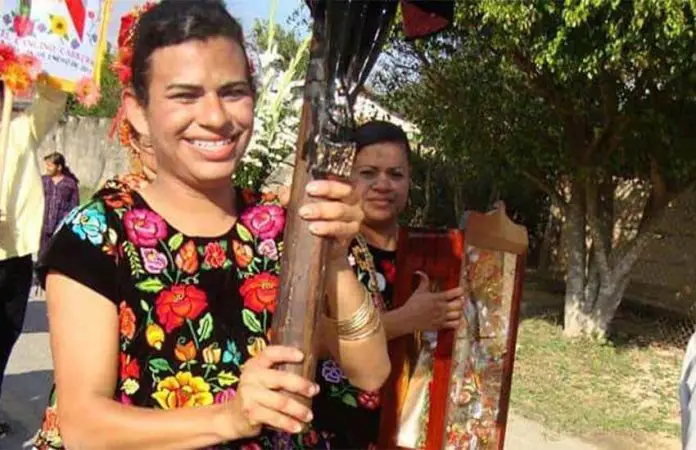A member of the Muxe community became the first person from the “third gender” to win an election on Sunday, doing so under the indigenous governing code known as usos y costumbres.
Bulmaro López Cabrera, 35, better known as Carisia, will be municipal agent of Santiago Ixtaltepec, a Zapotec village of 1,500 residents, 320 kilometers east of Oaxaca city.
The Muxe are a group in the primarily Zapotec Isthmus of Tehuantepec region in Oaxaca, born male but identify as female or simply Muxe.
Carisia — a businessperson and human rights activist — achieved victory without party affiliation but favors the ruling party Morena and will assume the three-year role on January 1.
However, the political novice said the new administration would be forced to operate on scant resources. “They [the former administration] didn’t even leave us a pen,” López said, explaining that the plan was to ask locals to help out.

“They [the community] gave me soft drinks, water and food when I was campaigning. Now, once again, I will ask for help to get paper, pens, buckets, brooms. What I want is for all of us to help each other because this government is community-made,” López said. “I want them to accept me as I am, for them to call me Carisia and to allow me to show that I can govern.”
The newcomer said improving access to healthcare would be a priority. After the first year, López also said, the community would be consulted to gauge its support for López remaining in the post.
State Morena Deputy Yesenia Nolasco wrote on social media that López’s victory was symbolically important. “I congratulate with great affection my friend Carisia for being the first Muxe to win elections … This event is transcendent and a reference point for advances in inclusion.”
Carisia’s triumph isn’t the first time a Muxe has run for a political post. Three Muxes competed in recent elections in the Isthmus of Tehuantepec: Joseline Sosa Gómez ran for Tehuantepec federal deputy, and Krital Aquino and Gabriela Montero ran for the local government of Juchitán de Zaragoza.
With reports from El Universal and Página 3
